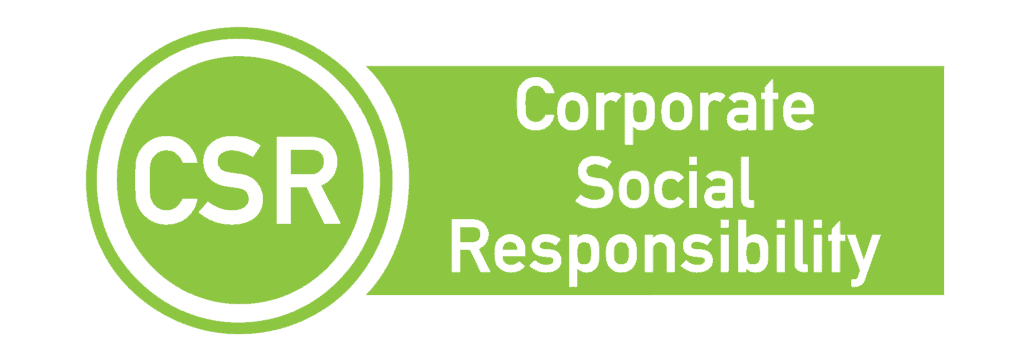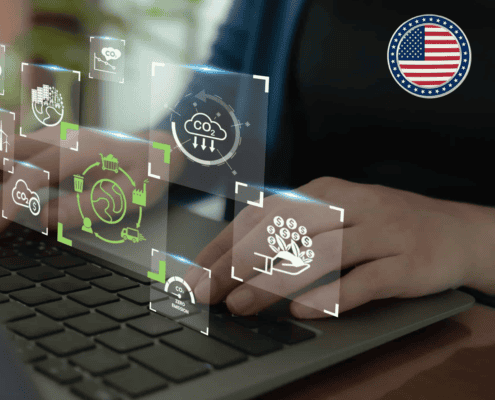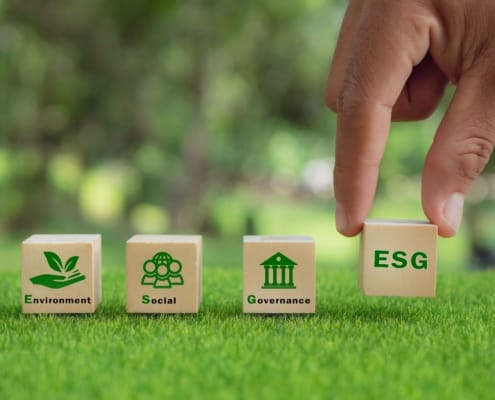CSR CERTIFICATION SUPPORT
Driving Sustainable Success: Your Partner in Achieving CSR Certification
At GPSI, we understand that there are numerous paths to becoming a responsible corporate citizen, and certification is undoubtedly one of the most powerful. Our dedicated team of experts is here to guide you through this transformative process:
Start your transformation towards responsible corporate citizenship today. Join forces with GPSI, and together, let’s create a lasting impact for your business and society.

KEY BENEFITS & FEATURES

Stand out to your stakeholders by demonstrating that your organization has implemented a recognized standard for sustainability and social responsibility.
Gain additional assurance in your management system by aligning your business practices with global sustainability standards and best practices.
Partner with our team of experts who will guide you through the certification process, helping you achieve your CSR certification right from the start.

Our team of certified coaches specializes in providing personalized support tailored to your unique needs and availability. Whether you’re just beginning to explore certifications or have already selected one, we are here to guide you along every step.
Understanding how certification processes work is essential, and we take the time to explain the intricacies involved. We break down the certification framework, ensuring that you have a clear understanding of its requirements and expectations.
Preparing the necessary documents for certification can be a complex task. However, with our expertise, you can rest assured that you’ll be well-prepared. Our team assists you in identifying and organizing the required documentation, streamlining the process for you. Furthermore, we take care of communicating with relevant stakeholders and diligently follow up on your behalf, ensuring a smooth certification journey.
Throughout the certification process, we prioritize keeping you informed about the status and any upcoming deadlines. We understand the importance of transparency and aim to provide regular updates on your progress. Our goal is to empower you with the knowledge and support necessary to successfully complete or obtain certification.
Becoming a certified B Corp signifies that your company upholds high standards when it comes to sustainable development, social responsibility, and transparency across all its operations. As a B Corp, your business actively demonstrates its commitment to making a positive impact on the environment and society. Our experts will guide you through the B Corp certification process, explaining the stringent criteria and helping you meet the necessary requirements. By achieving this certification, you can proudly showcase your dedication to fostering a sustainable and socially responsible business model.
The EcoVadis evaluation empowers you to assess your Corporate Social Responsibility (CSR) performance and share your results with your customers. It provides a valuable opportunity to benchmark your performance against industry peers and set achievable goals for continuous improvement. Our team will assist you in navigating the EcoVadis evaluation process, ensuring you have a clear understanding of the assessment framework and the areas where you can enhance your CSR practices. By attaining EcoVadis evaluation, you can effectively communicate your commitment to sustainability and responsible business practices to stakeholders, establishing your reputation as a trusted and conscientious organization.
 https://esg.gpsi-intl.com/wp-content/uploads/2025/12/usa-logo.png
973
1200
Tarek Riman
https://esg.gpsi-intl.com/wp-content/uploads/2025/08/large-Sustainability-Logo-3.png
Tarek Riman2025-12-04 17:31:562026-02-13 07:13:29Kobo Achieves EcoVadis Gold: From 58 to 83 Points in 20 Weeks
https://esg.gpsi-intl.com/wp-content/uploads/2025/12/usa-logo.png
973
1200
Tarek Riman
https://esg.gpsi-intl.com/wp-content/uploads/2025/08/large-Sustainability-Logo-3.png
Tarek Riman2025-12-04 17:31:562026-02-13 07:13:29Kobo Achieves EcoVadis Gold: From 58 to 83 Points in 20 Weeks https://esg.gpsi-intl.com/wp-content/uploads/2025/08/123canada.png
973
1200
Tarek Riman
https://esg.gpsi-intl.com/wp-content/uploads/2025/08/large-Sustainability-Logo-3.png
Tarek Riman2025-08-05 10:28:142026-02-13 07:11:57Case Study: Bee-Clean’s Journey to EcoVadis Bronze Medal
https://esg.gpsi-intl.com/wp-content/uploads/2025/08/123canada.png
973
1200
Tarek Riman
https://esg.gpsi-intl.com/wp-content/uploads/2025/08/large-Sustainability-Logo-3.png
Tarek Riman2025-08-05 10:28:142026-02-13 07:11:57Case Study: Bee-Clean’s Journey to EcoVadis Bronze Medal
 https://esg.gpsi-intl.com/wp-content/uploads/2023/10/shutterstock_1956931324-scaled.jpg
1705
2560
GPSI Team
https://esg.gpsi-intl.com/wp-content/uploads/2025/08/large-Sustainability-Logo-3.png
GPSI Team2023-10-06 15:36:052025-11-15 11:06:07How ESG Benefits a Company’s Reputation And Brand Image?
https://esg.gpsi-intl.com/wp-content/uploads/2023/10/shutterstock_1956931324-scaled.jpg
1705
2560
GPSI Team
https://esg.gpsi-intl.com/wp-content/uploads/2025/08/large-Sustainability-Logo-3.png
GPSI Team2023-10-06 15:36:052025-11-15 11:06:07How ESG Benefits a Company’s Reputation And Brand Image? https://esg.gpsi-intl.com/wp-content/uploads/2023/03/ESG-service-scaled.jpg
1707
2560
GPSI Team
https://esg.gpsi-intl.com/wp-content/uploads/2025/08/large-Sustainability-Logo-3.png
GPSI Team2023-05-23 15:38:462025-12-27 08:48:25The Importance of Implementing an ESG Roadmap For Your Company
https://esg.gpsi-intl.com/wp-content/uploads/2023/03/ESG-service-scaled.jpg
1707
2560
GPSI Team
https://esg.gpsi-intl.com/wp-content/uploads/2025/08/large-Sustainability-Logo-3.png
GPSI Team2023-05-23 15:38:462025-12-27 08:48:25The Importance of Implementing an ESG Roadmap For Your Company https://esg.gpsi-intl.com/wp-content/uploads/2023/04/shutterstock-31.jpg
1000
2000
GPSI Team
https://esg.gpsi-intl.com/wp-content/uploads/2025/08/large-Sustainability-Logo-3.png
GPSI Team2023-04-15 11:29:472025-12-16 14:09:52What to Expect from Working with ESG Consultants
https://esg.gpsi-intl.com/wp-content/uploads/2023/04/shutterstock-31.jpg
1000
2000
GPSI Team
https://esg.gpsi-intl.com/wp-content/uploads/2025/08/large-Sustainability-Logo-3.png
GPSI Team2023-04-15 11:29:472025-12-16 14:09:52What to Expect from Working with ESG ConsultantsWhat is a CSR certificate?
A CSR certificate recognizes businesses that are socially responsible and meet CSR standards. CSR is when companies manage their operations to benefit society and the environment.
CSR isn’t just for big companies. Small and medium sized businesses also develop social responsibility programs. Common CSR practices include limiting pollution and emissions, practicing fair labor and trade, funding community projects, and participating in sustainable business.
What are the requirements for CSR?
According to Corporate Finance Institute, there are four main CSR categories. Environmental responsibility is about minimizing environmental harm from business activities through sustainable practices. Human rights responsibility involves fair labor practices and avoiding child labor exploitation.
Companies demonstrate philanthropic responsibility by supporting charities, health programs, education, and community projects. Economic responsibility means companies try to benefit society through profitable and ethical business operations.
Why is a CSR certification important for my business?
According to Harvard Business School, a CSR certification helps strengthen a company’s image, sales, operations, and employee retention. Consumers prefer brands that are socially and environmentally responsible. Certification can lead to more loyal customers and higher revenue.
It also cuts costs through sustainable operations. Responsible companies tend to have committed workers and access more funding options. Likewise, CSR certification shows regulators that a company meets social standards.
How long does the CSR Certification process typically take?
Achieving CSR certification can take anywhere from a few months up to nine months depending on the program requirements and the size of the organization. More complex certification processes with extensive criteria tend to have longer timelines.
What support does GPSI provide during the certification process?
GPSI’s sustainability team helps companies integrate social responsibility and improve supply chain ethics. Services include auditing suppliers against sustainability criteria and ESG standards.
We identify supplier risks and provide solutions to reduce them. GPSI also assists clients in implementing sustainability policies, supplier codes of conduct, and contract changes.
Then we monitor supplier compliance through on-site assessments. Moreover, we collaborate with suppliers to create environmental performance improvement plans.
Is CSR Certification a one-time process, or does it require ongoing commitment?
No, CSR certification is not a one-time process. Companies must show an ongoing commitment to corporate social responsibility to maintain certification. Certified businesses undergo annual audits to ensure they continuously meet stringent CSR standards.
Renewing certification each year involves thoroughly reviewing policies, programs, and performance. It also requires improving any deficiencies auditors identify.
Companies demonstrate real dedication by regularly updating initiatives that benefit society and the environment. While pursuing initial certification takes effort, genuine CSR integration across operations is an enduring endeavor.
How can we assess our readiness for CSR Certification and identify areas needing improvement?
An experienced sustainability advisor like GPSI can thoroughly assess readiness for CSR certification. We review an organization’s existing policies, programs and practices against certification standards. Any gaps get identified and become improvement priorities.
Assessments also examine supply chain oversight mechanisms and ethical sourcing safeguards. In addition, our advisors audit facilities, and operations firsthand to catch potential issues.
We pay particular attention to environmental impact management and labor practices. With a comprehensive evaluation of current strengths and weaknesses, companies gain a clearer picture of preparation levels. The assessment findings serve as an impactful roadmap for targeting improvements on the path to certification.
What steps should our company take to prepare for the CSR Certification process?
To prepare for CSR certification, you should start by establishing cross-functional internal teams to drive the process. This includes executives, managers, and frontline employees across departments like operations, HR, legal, and procurement.
You would conduct readiness assessments by gathering existing policies and programs tied to CSR pillars like ethics, diversity, environment, and human rights. Any gaps against certification standards get identified for improvement prioritization.
Another critical step entails engaging external stakeholders like your suppliers, community groups and NGOs to provide input on your CSR impacts. Their perspectives would help shape more responsible and sustainable practices.
You would also implement data tracking systems to closely monitor key metrics on issues ranging from emissions to employee turnover. Documenting programs outcomes demonstrates certification-worthy commitment levels. Moreover, you should undergo mock audits and interviews to practice responding to certification evaluator scrutiny.
What types of documentation and evidence are typically required for CSR Certification?
According to the European Commission, CSR certification necessitates thorough documentation and concrete evidence across all assessment categories.
On the environmental side, auditors would review your monitoring data on energy, water, and materials usage plus waste generation over time. They scrutinize GHG inventories identifying emission sources and reduction targets.
Documented proof of workplace safety protections, proper hazardous material handling and sustainable procurement programs is essential too. For social criteria, required documentation covers diversity, equal opportunity, and anti-discrimination policies as well as fair compensation assessments.
Human rights evidence demands supply chain records like supplier codes of conduct and labor practice inspection reports. Ethics documentation encompasses fraud prevention, anti-bribery, and corruption procedures. Supporting examples range from complaint logs and investigation reports to completed ethics and inclusion training records for all your employees.
How does the CSR Certification process address issues like environmental sustainability and social responsibility?
CSR certification directly and rigorously addresses your environmental and social responsibility concerns. A study published on Link Springer states that Evaluating your sustainable operations practices takes center stage through energy, waste and water footprint metrics analyses and auditing protocols.
According to the University of Hong Kong, supplier assessments hone in on environmental criteria compliance within global supply chains too. Certification equally weighs workplace diversity and inclusion benchmarks, pay equity assurance systems and robust human rights protections throughout your facilities and business relationships.
ECO-CERT states that review processes carefully gauge the scope, maturity and demonstrated efficacy of policies and programs targeting issues from conflict minerals sourcing avoidance to local community support mechanisms.
Ongoing monitoring mechanisms also factor heavily to confirm certified businesses like yours continuously improve and progress toward environmental and social responsibility aims over time.
Can CSR Certification support help us in developing a more robust CSR strategy?
Yes, leveraging experienced CSR certification consultants would undoubtedly help strengthen your corporate social responsibility strategy. According to the Center for Corporate Citizenship, specialized support can guide establishing goals aligned to globally recognized ESG standards early on.
Advisors would help review current practices and policies to spot any gaps your internal team may overlook on aspects ranging from life cycle analyses to access and inclusion barriers. They anticipate likely evaluator concerns and help preemptively address them as well as optimize responses.
Certification mentoring sheds light on peer leader benchmarks to inspire your strategy advancement. External experts also coach key executives to credibly convey genuine commitment during the process itself.
Ongoing support equips you to navigate policy and program enhancements to satisfy and even surpass certification parameters long-term. The insight facilitates broader strategy impact reaching beyond certification status alone.
What ongoing commitments are required after obtaining CSR Certification to ensure continued compliance?
According to McKinsey, gaining CSR certification is not the end of the process. To maintain certified status, companies must honor numerous ongoing commitments tied to central ESG focus areas. Environmentally, this demands continuously monitoring and reporting energy, emissions, waste, water usage and stewardship data.
PWC advises companies need to show sustained compliance with strict supply chain ethics and human rights protections. Ensuring non-discrimination and pay equity requires properly documenting up-to-date audits and addressing any shortcomings.
According to Harvard Business Review, annually renewed action plans targeting further greenhouse gas reductions and diversity enhancements become imperative as well.
Transparent disclosure through CSR reports or integrated financial reports also grows more important for demonstrating fulfillment of certification standards over time. The central commitment becomes fully integrating accountable, ethical, and sustainable decision-making into all business operations.
What specific support does the certifying body provide during the CSR Certification process?
Certifying organizations provide invaluable guidance at each stage of preparation, evaluation, and ongoing accountability. Early on, advisory support assists in comprehensively analyzing existing policies and programs compared to certification requirements.
Gaps get identified to hone strategic priorities for elevation to acceptable standards. Once application begins, clearly delineated documentation protocols help assemble all necessary data records efficiently.
Certification mentors provide best practice advice for conveying adherence levels through reporting and interviews too. If any shortcomings emerge post-audit, remediation recommendations keep companies on track without totally restarting the process.
Post-certification, periodic compliance check-ins occur along with training refreshers for employees. Some certifiers even help newly certified companies promote their heightened status to stakeholders and consumers.
How frequently do we need to renew CSR Certification, and what does the renewal process entail?
Most major CSR certification bodies require renewing compliant status on an annual basis. This necessitates undergoing intensive follow-up audits by assigned evaluators each year.
Renewal auditing revisits all original assessment domains around environmental sustainability, ethics, human rights and societal impacts. Companies must demonstrate continuously meeting baseline requirements since initial certification.
But certifiers also expect measurable improvement and progression annually. Renewal reports compile updated usage statistics, policy refinements, program metrics, and compliance records over the past year.
Evaluators then scrutinize the scope and scale of advancement through on-site observations and stakeholder interviews too. Successfully renewing underscores that CSR integration permeates corporate strategy instead of acting as a superficial badge.
How does CSR Certification impact our company’s internal policies and procedures?
The extensive requirements of CSR certification fundamentally upgrade internal accountability mechanisms. According to Link Springer, review processes scrutinize existing ethical sourcing, environmental and equity safeguards to identify blind spots and deficiencies.
This facilitates major policy overhauls enhancing sustainability, transparency and fairness and ultimately cascading down into transformed procedures. Every operation from hiring to procurement undergoes modifications to satisfy external compliance mandates.
Expanded employee training accompanies policy changes to ensure new protocols take hold across all levels. Documentation practices dramatically increase as well, with detailed reporting becoming integral for demonstrating adherence to upgraded standards.
Moreover, certification sparks continual self-assessment and improvement cycles leading to increasingly responsible and ethical corporate conduct year after year.
In what ways can CSR Certification influence our business strategy and long-term goals?
According to NEXFORD, achieving internationally recognized CSR certification validates an organization’s commitments to ethics, human rights, inclusion and environmental stewardship. This supports reframing business priorities and long-term goals centered on accountable conduct.
According to McKinsey, Companies reorient objectives toward responsibly sourced supply chains, equitable workplaces, reduced emissions and waste, and community betterment. Executives reference certification standards while plotting sustainability trajectories for the next 5-10 years.
A whitepaper by Siemens states that cross-departmental key performance indicators track progress on issues from renewable energy adoption to minority representation in leadership tiers. Overall, certification provides a framework spurring strategy-level evolution benefiting both business and society.
In what ways can CSR Certification support our company in involving employees and stakeholders in CSR initiatives?
The intensive certification process demands active participation at all levels to design and implement internal enhancement plans. Employees gain frontline perspectives on topics like sustainability challenges and workplace equity barriers needing action.
Certifiers expect robust stakeholder engagement also, so companies consult impacted groups to shape community programs. Ongoing dialogue and collaborative development of new initiatives, then circles back to further activate employees and partners.
What are the benefits of CSR Certification in terms of enhancing reputation, trust, and customer engagement?
Tangible CSR commitment boosts corporate reputation and trust dramatically, driving increased customer affinity and purchase intent. According to PWC’s global survey, over 70 percent of consumers preferentially seek out and support businesses with CSR certification badges on their ecommerce sites, storefronts, or products.
Media coverage of certification attainment also bolsters brand image. This effect stems from certification signaling authentic, vetted efforts to mitigate environmental and societal harm from operations versus potential greenwashing. Customers consequently feel better aligning with the brand ethically and emotionally.
How can obtaining CSR Certification assist in complying with international standards and global best practices?
Major CSR certifications directly map to authoritative global standards around issues like human rights, environmental protections, and ethical practices. By satisfying certified benchmarks, companies automatically realign to respected worldwide codes and norms.
Certifiers connect certified entities for ongoing collaboration and knowledge sharing as well. This facilitates continued advancement in lockstep with the latest high-bar guidelines and best practices emerging worldwide.
What role does CSR Certification play in enhancing employee engagement and productivity?
The intense assessment and policy overhaul processes demand extensive employee participation across hierarchies and departments. This immersive exposure to CSR priorities fires up workforce engagement in ethics and sustainability at a personal level. Employees then readily champion implementation of upgraded standards and programs intrinsically.
A study published in the Schmalenbach Business Review shows certified companies benefit from over 85 percent of staff feeling motivated to help expand CSR-focused activities. By unleashing employee passion and purpose behind corporate responsibility efforts, certification also delivers over 20% increased productivity.
What role does CSR Certification play in enhancing employee engagement and productivity?
The intense assessment and policy overhaul processes demand extensive employee participation across hierarchies and departments. This immersive exposure to CSR priorities fires up workforce engagement in ethics and sustainability at a personal level. Employees then readily champion implementation of upgraded standards and programs intrinsically.
A study published in the Schmalenbach Business Review shows certified companies benefit from over 85 percent of staff feeling motivated to help expand CSR-focused activities. By unleashing employee passion and purpose behind corporate responsibility efforts, certification also delivers over 20% increased productivity.
Glossary
CSR Certification: A formal recognition that a company meets verified standards in sustainability, ethics, and responsible business conduct.
Responsible Corporate Citizenship: Operating in a way that positively impacts society, stakeholders, and the environment while maintaining business integrity.
Certification Pathways: The different recognized routes and standards available to organizations pursuing CSR certification.
Comprehensive Guidance: Expert support to clarify certification requirements, timelines, and best-fit options.
Certification Guide: A dedicated advisor who supports decision-making and provides direction throughout the certification process.
Tailor-Made Solutions: Customized approaches designed to align certification strategy with the company’s industry, scale, and maturity level.
Streamlined Documentation: Organized preparation of required evidence, forms, and records to ensure a complete and accurate certification submission.
Document Preparation Support: Hands-on help in gathering, structuring, and formatting documentation needed for certification review.
Stakeholder Coordination: Managing communication and follow-ups with internal teams and external partners involved in the certification process.
Real-Time Visibility: Transparent updates on progress, deadlines, and outstanding actions throughout the certification journey.
Sustainability Showcase: Demonstrating your commitment to responsible practices through third-party certification that strengthens credibility.
Assured Alignment: Ensuring your management systems and policies are consistent with global sustainability expectations and best practices.
Sustainability Profile: Your company’s verified reputation and maturity level regarding sustainability and ethical operations.
Sustainability Expertise: Deep knowledge of sustainability standards, frameworks, and best practices applied across industries.
Abides by the Latest ESG Norms & Standards: Alignment with current global regulatory expectations and evolving sustainability benchmarks.
EcoVadis Approved Training Partner: Official recognition that GPSI is trusted to guide organizations through EcoVadis certification and improvement.
Certification Coach: A dedicated expert who guides organizations step-by-step through the certification process.
Certification Framework Understanding: Helping clients clearly grasp criteria, scoring logic, and system requirements.
Continuous Support: Ongoing advisory assistance from initiation through certification completion and renewal cycles.
B Corp Certification: A globally recognized certification demonstrating that a company meets high standards of social and environmental responsibility, transparency, and accountability.
EcoVadis Assessment: A CSR scoring and benchmarking evaluation that allows companies to assess, communicate, and improve their sustainability performance.
We can support you in your journey towards greater sustainability.
Let us demonstrate how ESG services can meet your needs.
We will be more than happy to answer your questions and help you!
With our support, you will showcase your commitment to sustainable development to all your stakeholders. You will receive quality services tailored to your needs from a dynamic and passionate team.
By phone. Our hours of operation are 8:00 AM – 5:00 PM EST.:
Canada toll free : 866-980-1387
US Office : 316-263-1288

As an EcoVadis training partner and consultant, GPSI enhances your compliance journey with added value. This service empowers you to evaluate and elevate sustainability performance across your supply chain, ensuring comprehensive compliance.
Canada toll free : 866-980-1387
US Office : 316-263-1288
